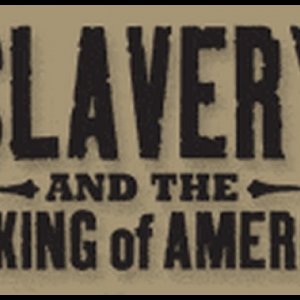Wall Street Reform and Consumer Protection Act Passes in the House
Posted By admin On December 11, 2009 @ 4:14 pm In Featured Stories | 189 Comments
Kurt Nimmo
Infowars
December 11, 2009
Earlier today, the House passed the Wall Street Reform and Consumer Protection Act on a vote of 223-202. The bill contains an amendment authored by Rep. Ron Paul that will allow the Government Accountability Office to audit monetary policy decisions made by the Federal Reserve.
Ron Paul voted against the bill even though it contains an audit the Fed provision.
Ron Paul talked with Alex Jones about the bill and his amendment today. A call placed to Jesse Benton, Paul’s press secretary, by the Alex Jones Show after Paul’s appearance clarified Paul’s position on the bill. Paul supported his amendment but opposed passage of the larger bill and did not vote for it. A roll call of the vote can be viewed here.
On December 11, The Wall Street Journal asked Paul if he would vote for the bill. “For some people who work in a conventional way, it would be, but not for me,” he told the newspaper. “People have asked me, and I say I’ll just do what I usually do. I’ll look at the whole bill, and try to make the bill as good as possible but if it’s still something I can’t endorse, then I’ll vote against final passage. But I always try to support all the amendments that I think will improve it, but I treated my amendment like I treat every other amendment.”
The 1,300-page bill establishes a Consumer Financial Protection Agency, a systemic-risk oversight council, new capital requirements for financial institutions, and a “resolution” authority for non-banks. It also requires financial products like derivatives to be more transparent, overhauls rating agency laws, changes securitization rules, and alters the FDIC bank rescue fund.
Critics, however, say the bill will hurt small business and reduce competition. “The Wall Street Reform and Consumer Protection Act represents a major intrusion by government into this important sector of the economy,” FreedomWorks reports today. “With new fees, regulations, and reporting requirements, the legislation threatens jobs, global competitiveness, and economic growth. At the same time, the legislation creates sweeping new powers for the oversight of private businesses, from insurance to banks to mortgage brokers. Ultimately, consumers may bear the brunt of the legislation. For example, regulations released by a new consumer protection agency may have unintended consequences that reduce access to credit while raising the price of credit.”
Ohio Democrat Dennis Kucinich also voted against the bill. Kucinich believes the legislation does not go far enough in regulating over-the-counter derivatives. On his website today, Kucinich noted numerous loopholes in the bill “that sophisticated financial industry insiders will exploit with ease.”
Kucinich praised the efforts of Paul and Alan Grayson to include in the bill the authority of the GAO to conduct audits of the Federal Reserve. However, he writes, “the financial crisis — and the government’s extraordinary response — taught us monetary policy and regulatory policy must be exclusive. Relying on one entity to conduct both activities so vital to a healthy financial system will inevitably give rise to conflicts of interest. This bill, however, further conflates these policies at the Fed by giving the Fed more regulatory authority.”
In other words, regardless of the prospect of an audit of the Fed, the bill invests even more power in the Federal Reserve.
Posted By admin On December 11, 2009 @ 4:14 pm In Featured Stories | 189 Comments
Kurt Nimmo
Infowars
December 11, 2009
Earlier today, the House passed the Wall Street Reform and Consumer Protection Act on a vote of 223-202. The bill contains an amendment authored by Rep. Ron Paul that will allow the Government Accountability Office to audit monetary policy decisions made by the Federal Reserve.
Ron Paul voted against the bill even though it contains an audit the Fed provision.
Ron Paul talked with Alex Jones about the bill and his amendment today. A call placed to Jesse Benton, Paul’s press secretary, by the Alex Jones Show after Paul’s appearance clarified Paul’s position on the bill. Paul supported his amendment but opposed passage of the larger bill and did not vote for it. A roll call of the vote can be viewed here.
On December 11, The Wall Street Journal asked Paul if he would vote for the bill. “For some people who work in a conventional way, it would be, but not for me,” he told the newspaper. “People have asked me, and I say I’ll just do what I usually do. I’ll look at the whole bill, and try to make the bill as good as possible but if it’s still something I can’t endorse, then I’ll vote against final passage. But I always try to support all the amendments that I think will improve it, but I treated my amendment like I treat every other amendment.”
The 1,300-page bill establishes a Consumer Financial Protection Agency, a systemic-risk oversight council, new capital requirements for financial institutions, and a “resolution” authority for non-banks. It also requires financial products like derivatives to be more transparent, overhauls rating agency laws, changes securitization rules, and alters the FDIC bank rescue fund.
Critics, however, say the bill will hurt small business and reduce competition. “The Wall Street Reform and Consumer Protection Act represents a major intrusion by government into this important sector of the economy,” FreedomWorks reports today. “With new fees, regulations, and reporting requirements, the legislation threatens jobs, global competitiveness, and economic growth. At the same time, the legislation creates sweeping new powers for the oversight of private businesses, from insurance to banks to mortgage brokers. Ultimately, consumers may bear the brunt of the legislation. For example, regulations released by a new consumer protection agency may have unintended consequences that reduce access to credit while raising the price of credit.”
Ohio Democrat Dennis Kucinich also voted against the bill. Kucinich believes the legislation does not go far enough in regulating over-the-counter derivatives. On his website today, Kucinich noted numerous loopholes in the bill “that sophisticated financial industry insiders will exploit with ease.”
Kucinich praised the efforts of Paul and Alan Grayson to include in the bill the authority of the GAO to conduct audits of the Federal Reserve. However, he writes, “the financial crisis — and the government’s extraordinary response — taught us monetary policy and regulatory policy must be exclusive. Relying on one entity to conduct both activities so vital to a healthy financial system will inevitably give rise to conflicts of interest. This bill, however, further conflates these policies at the Fed by giving the Fed more regulatory authority.”
In other words, regardless of the prospect of an audit of the Fed, the bill invests even more power in the Federal Reserve.





